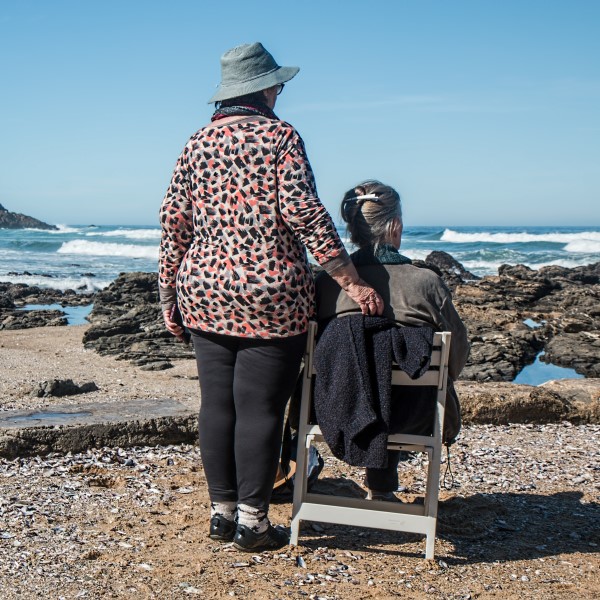What do you hope to see from applications for the Healthy Ageing Catalyst Awards?
We want to see transformative ideas with a really good grounding in research. It doesn’t matter what career stage you are at, or even if you’ve worked in the healthy ageing field before, if you have a good research-informed idea which may transform our ability to age in better health, we’d love to hear from you.
How are the Catalyst Awards different from other funding streams?
The Catalyst Awards are unusual in that they represent the first attempt from UKRI to encourage high-risk, high-reward transformational research in a specific business area (healthy ageing). This is a chance for you to put in an application that you would never consider submitting to a ‘standard’ UKRI grant, but which has enormous potential. We hope the Awards will help to prime a pipeline of ideas and innovation from academia, helping to invigorate an area where we see quite an underdeveloped market. What we are doing is very much a parallel to what Aspect are working towards, but with a specific healthy ageing mission element that comes from working within an ISCF Challenge.
Why are you particularly welcoming applications from Arts, Humanities and Social Sciences?
Academics working in arts, humanities and social sciences (AHSS) have a huge number of ideas and insights that could have enormously positive societal impacts. However, AHSS does not have the very strong history of the kind of impactful innovations that we see in other discipline areas. Partly, this has been because AHSS researchers don’t feel existing Catalyst-style programmes support the kind of social impact they are aiming for. There is a huge reservoir of ideas which we are trying to tap into by working with Zinc, and by thinking about AHSS innovation and impact in a different way. We want to see entrepreneurial thinking and ambition to create positive and lasting change, but this doesn’t necessarily have to be through a business, it could equally come from activities such as starting a charity, a social movement or policy activity.
What opportunities will there be beyond the Catalyst Awards?
In addition to being part of the ISCF Healthy Ageing Challenge, the Catalyst Awards also act as the UK arm of the Healthy Longevity Global Grand Challenge competition, led by the US National Academy of Medicine. These are a grouping of similar awards, all seeking to transform our ability to age in good health, via providing funding for high-risk, high-reward research-led innovations. The Catalyst stages are followed up by Accelerators and culminate in a grand prize of US$5m, so there are really good opportunities for successful UK grant holders to get follow-up funding and support.
Why did you decide to partner with Zinc on this funding stream?
Zinc won a tender to provide a support package to our Catalyst Award holders. Initially, this was just to support them to understand the options they had to sustain the impact of their work, but it quickly developed into a deeper collaboration as we looked to find a new way of applying for these grants, not just to provide post-hoc support. The hope is that everyone going through the application process gains a little bit of knowledge and insight into being an entrepreneurial researcher. Zinc offer a perfect environment for offering that supportive but challenging process.
Zinc will be providing a 9-month programme of support as part of the Healthy Ageing Catalyst Awards. This support will be tailored to each Award holder, offering them personal development to help them find how they can make an impact, alongside support to hone their product, service or movement and create a solution that can be successful at scale. Award holders will also benefit from being part of a cohort, with opportunities to access advice and expertise from the wider Zinc community.
Anyone interested in applying for this award or sharing this opportunity with researchers can find out more on the Catalyst Awards website, or by contacting the Zinc team. The process starts with workshops in January and final decisions will be made in June before successful applicants start in September 2021.
Photo credit: Pixabay via Pexels




